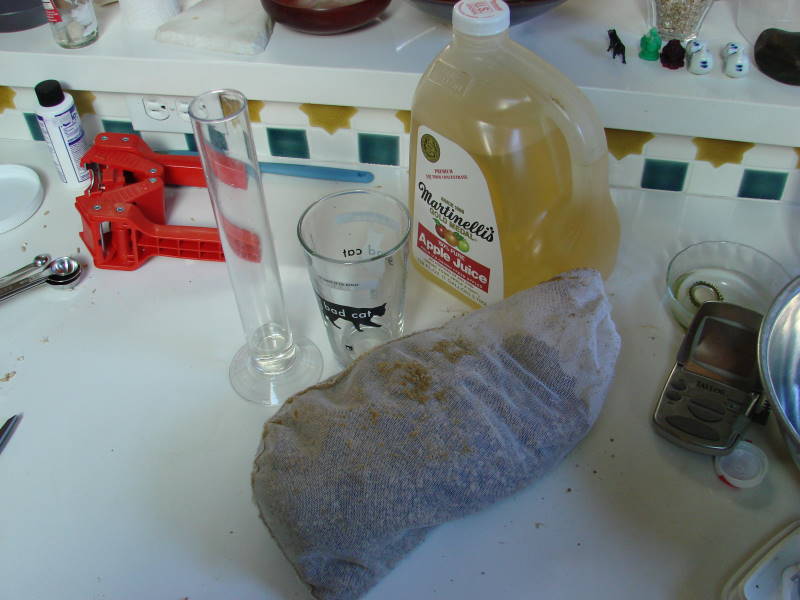woozy
Well-Known Member
- Joined
- Mar 8, 2013
- Messages
- 1,297
- Reaction score
- 132
So I tried my first all-grain today. A one gallon batch. 1.8 lbs of grain in a mesh bag and...
Target Original Gravity: 1.057 (which includes 1/4 cup honey and 2 oz belgian candy)
My Original Gravity: 1.034
Calculated Original Gravity at 100% efficiency according to calculator 1.071.
Calculator says: My efficiency was 45.1
Recipe says: Its efficiency was 70%
Is this bad? What should I have done to make it better? And how can I tell during mashing how I am doing?
===
FWIW grains were 1.35 lb U.S 2-row pale, .1 lb crystal 10, .1 lb crystal 20, .1 lb american victory, .15 torrified wheat. Plus 1/4 cup (2 oz) honey, 2 oz belgian candi.
Target Original Gravity: 1.057 (which includes 1/4 cup honey and 2 oz belgian candy)
My Original Gravity: 1.034
Calculated Original Gravity at 100% efficiency according to calculator 1.071.
Calculator says: My efficiency was 45.1
Recipe says: Its efficiency was 70%
Is this bad? What should I have done to make it better? And how can I tell during mashing how I am doing?
===
FWIW grains were 1.35 lb U.S 2-row pale, .1 lb crystal 10, .1 lb crystal 20, .1 lb american victory, .15 torrified wheat. Plus 1/4 cup (2 oz) honey, 2 oz belgian candi.




